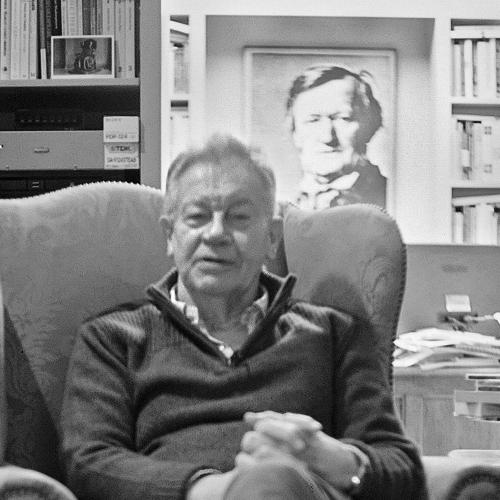COMPOSERS: Brahms,Rachmaninov,Schubert
LABELS: DG
WORKS: Brahms: Variations on a Theme by Joseph Haydn; Rachmaninov: Symphonic Dances; Schubert: Rondo in A, D951; Ravel: La valse
PERFORMER: Martha Argerich, Nelson Freire (piano)
CATALOGUE NO: DG 477 8570
This concert, given in the gigantic Grosses Festspielhaus in Salzburg last August, is a treat. DG might have taken more time to provide notes fuller than we have: a mood-evocation of the event is not enough for the in some ways unfamiliar works programmed.
However Martha Argerich and Nelson Freire are partners of long standing, and here they play four fine pieces, alternating as to who is piano 1 and 2, or in the Schubert where they duet on a single piano primo or secondo. They sound as if they are enjoying themselves, and they have no trouble in communicating that.
Their performance of the Brahms Haydn Variations confirms me in my long-held view that they sound better played this way than in the usual orchestral version. The crucial factors that are varied are harmony and rhythm, and when colour is in question this pair can easily supply that too.
It is hardly surprising that synchronisation is not always immaculate: two pianists with ten feet of grand piano between them, and both players with a tendency towards spontaneous rubato, are bound to have moments of divergence. The wonder is that, playing with such enthusiasm and abandon, there are not more minor accidents.
Equally, I am not a fan of Rachmaninov’s orchestration, so find this version of his masterly Symphonic Dances a delight, and am more impressed than ever by the extension of his range that they indicate. There are places where the composer comes near to astringency, the last quality one would normally associate with him.
Indeed, in almost every respect this large-scale piece is a departure from the luscious idiom which had earned him his popularity and fame, and that advance is still more evident in this two-piano version than in the more familiar orchestral one. The Schubert duet is played with beguiling naturalness, a refreshment after the huge number of notes that Brahms and Rachmaninov employ at every moment.
And then the dizzy, insane whirl of La valse, if it doesn’t match the frightening intensity of the orchestral version, is still disturbing, and in the final pages these two great artists throw any remaining caution to the winds. Not to be missed, though the piano tone can be a touch hard-edged. Michael Tanner
